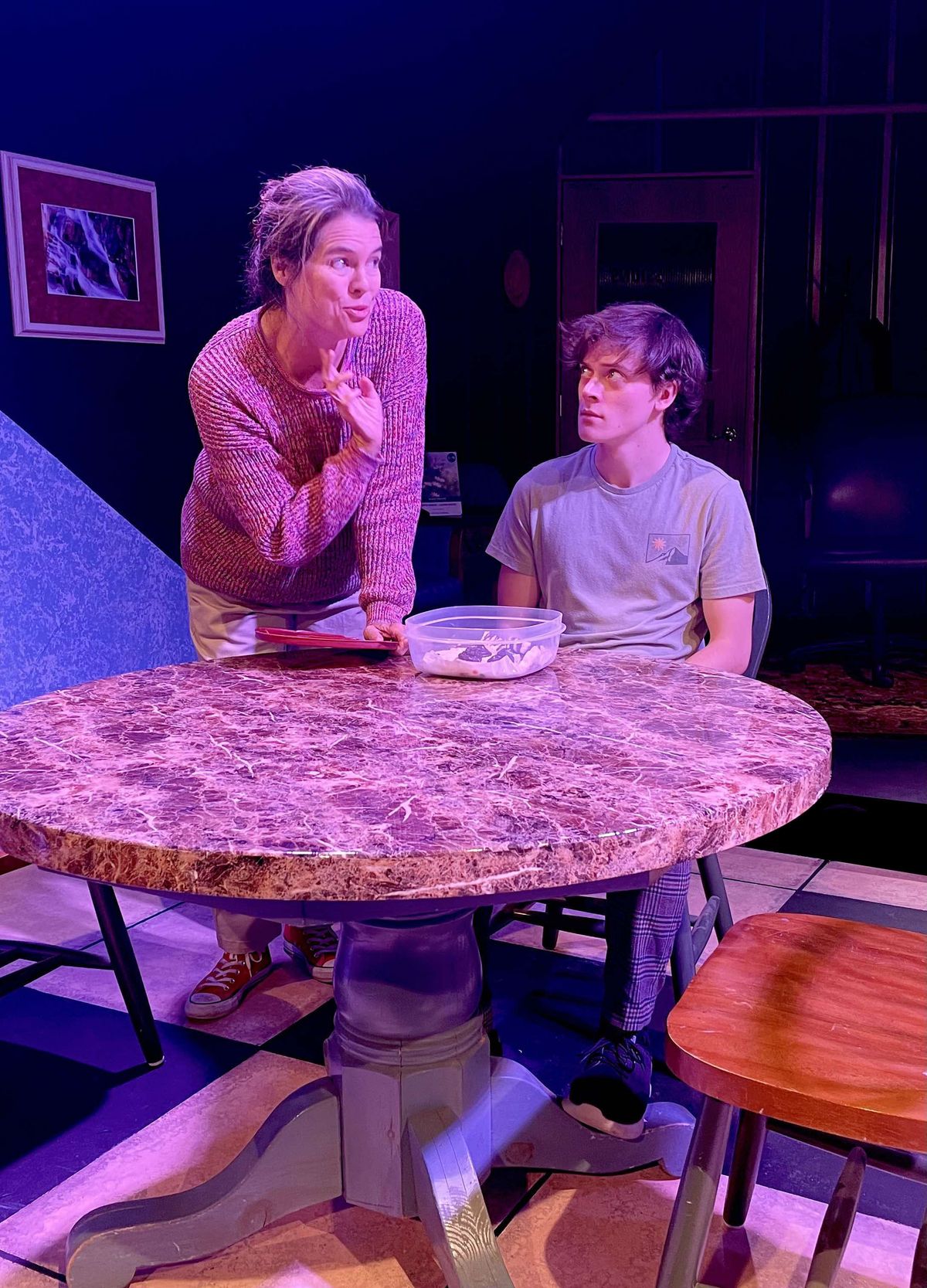‘Admissions’ at Stage Left Theater delves into questions of class, race and priviledge

Opening Friday at Stage Left Theater, Joshua Harmon’s “Admissions” takes a satirical approach to the white perspective of race, class, privilege and diversity.
Set in New Hampshire, the show follows Sherri (Deborah Marlowe), the self-righteous head of admissions at a second-tier (soon-to-be first-tier) preparatory boarding school, and her husband, Bill (Tom Sanderson), the school’s headmaster. Already on the path to dragging “the stodgy institution” into the 21st century, the couple fight to promote diversity in the student body.
But when their only son’s (Rhead Shirley) Ivy League dreams are threatened, chaos ensues as personal ambition and progressive values collide. Directed by Susan Hardie, the cast also features Audrey Overstreet as Ginnie and Pam Kingsley as Roberta.
Running from Sept. 16 to Oct. 2, shows are 7 p.m on Thursdays, Fridays, and Saturdays and 2 p.m. on Sundays.For information, visit stagelefttheater.org. Tickets are $25 for general admission and $20 for seniors/students/military.
Using exaggeration, irony and other satirical devices, the play aims to “expose not only the hypocrisy of this particular class of people that we’re talking about, but also allow people to laugh until they’re not laughing, and maybe start reflecting on how they fit into this world,” Hardie said.
“It’s a satire, but the people we embody and the things that we say are not too far off from the things that – I think – a lot of us think, but may not say,” Shirley said.
“Admissions” serves as a sort of companion piece to Stage Left’s last production, “Pass Over” by Antoinette Nwandu, Hardie said. Where “Pass Over” looks at systemic racism through the eyes of a majority Black cast, “Admissions” approaches related issues from a perspective informed by white privilege, power and guilt.
In addition to race, Marlowe said, the play highlights class disparity.
“I don’t think you can just say, ‘Ooh, there’s a show about racism,’” Marlowe said. “It’s about helicopter moms, it’s about privilege based on class, because I think we forget … for a lot of people, Harvard? Yale? That’s not a question that we even consider.
“We all have our blind spots … but isn’t that what we all love about theater? It makes us think and it makes us self examine … it holds up a mirror for all of us.”
For Pam Kingsley, diving into the role of Roberta, was uncomfortable but also crucial.
“When I’m on stage, I’m her … and I say some pretty ugly things,” Kingsley said. But as a playwright herself, Kinsley takes heart in the moments where Roberta speaks truth without realizing it.
She hopes audiences enjoy the show, but leave with something more than laughter.
“My hope is that they just sit there soak it in, laugh when they feel like it, gasp when they feel like it – it’s their journey,” Kingsley said. “However, I hope they go home, and as they put their head on the pillow at night, go ‘Hmm.’ Because the more we look at it, the more we pay attention to ourselves, the better we’re going to be.”